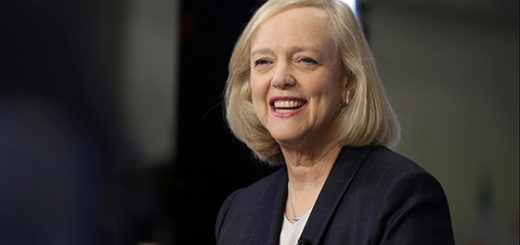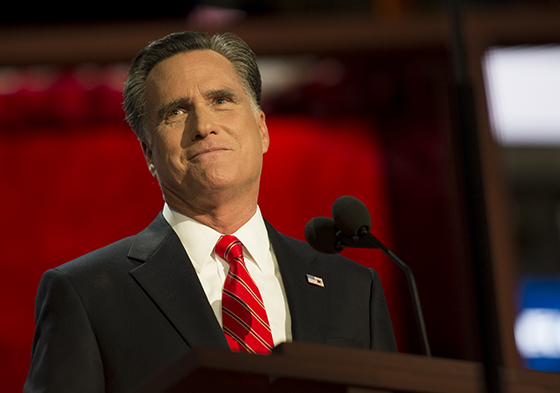Playing bad poker with the gas money.
“If, after the first twenty minutes, you don’t know who the sucker at the table is, it’s you. ”
~Author Unknown
I have played a little bit of poker in my life. I’m not a great card player but I do understand the fundamentals of the game. The game is not about what cards you draw. The game is about how you play your cards against your opponent.
Imagine yourself in a high stakes card game. A game in which your financial security and that of your family is on the line. Imagine being at the table with ruthless players, the kind of players that will exploit the smallest weakness.
Imagine opponents who wish to take all of your money and then have you killed when you leave the saloon.
Now imagine someone standing right behind you telling these adversaries exactly what cards you are holding and exactly how you intend to play them. Imagine also that that same someone is prohibiting you from drawing even a single card to improve your hand.
If you can picture all of that, you are seeing one of the fundamental reasons that gasoline prices have gone up by more than 60 percent since the November election of 2006.
In this poker game, you are the U.S. energy industry. Your opponents are Middle East oil producers, together with energy traders and speculators. And the idiot behind you tying your hands when you try to draw, while telegraphing your cards to your adversaries, is the U.S. Congress.
Oil prices are sky high for a number of reasons, most of them beyond our control. One of the biggest is that world demand keeps rising because of the economic expansions in China and India. Another is that the U.S. dollar, the currency in which oil is denominated, is at a cyclical low.
But a big reason that oil prices are high is because oil is being bid up by speculators. And that is a reason over which we have a great deal of control.
Those that produce oil and those that trade in oil are now convinced that we will not draw to our hand. By that, I mean that despite the fact that we know that there is oil in the Alaska National Wildlife Refuge (ANWR), that there is oil and gas in the Outer Continental Shelf and that there is oil locked up on federal lands in the Midwest, our government steadfastly refuses to allow the American oil industry to go produce it.
Oil speculators, knowing that demand will continue to rise while the biggest oil user, the U.S., will do nothing about supply, continue to bet on higher prices. So far, that has been a good bet.
In Congressional testimony this week, representatives of the oil industry testified that because a pipeline head is only 74 miles from ANWR, we could begin producing a million to a million and a half barrels a day from ANWR within a year.
In other hearings, Schlumberger estimated that federal lands in the Midwest hold shale reserves equal to over a trillion barrels of oil, yet the process for leasing and exploring that land is so cumbersome as to be impossible.
But Paul, drilling for oil in all of those places will cause severe environmental damage.
Really?
Will someone please show me the ecological catastrophes in Kilgore and Longview? You know, all that environmental damage that has been done in the 81 years that we’ve been producing oil in East Texas.
We’re playing poker with ruthless players who know that we don’t have the stones to draw to a pair of tens.
Energy economists estimate that speculation is adding 20 to 25 percent to the cost of gasoline. Want to end the speculation? It can be done literally tomorrow – before even the first well is drilled.
House Speaker Nancy Pelosi and Senate Majority Leader Harry Reid just need to hold a joint press conference. They announce that in light of the high prices working Americans are paying for gasoline; and in light of America’s ability to make a significant impact on world oil supplies through production of its own resources; they are reversing their position on ANWR and the Outer Continental Shelf and other federal lands and will immediately propose legislation to enable the U.S. energy industry to begin exploration in those areas.
The price of gasoline at the pump would drop by as much as a dollar almost overnight.
In poker it’s called “calling your opponents’ hand.” In government, it’s called sound policy.









Having played a fair amount of poker myself, I can’t imagine playing under the conditions you describe. Most people wouldn’t even enter a game under these conditions. And yet somehow, Exxon-Mobil won 43 billion dollars playing this game. Can you imagine? Neither can I, thus your silly analogy can be written off as nonsense.
Anyone mentioning how much oil companies earn without mentioning how much they invested to earn it is clearly engaging in deception and their comments can be written off as nonsense.
If I said I earned $10,000 profit on an investment, you would have no way of knowing if that was good or not until you knew if I had $1,000 or $1 million at stake.
At the end of the day, if you feel that oil companies are earning too much money at your expense, simply buy their stock and enjoy the benefits of their “windfall profits”.
Don’t be too surprised, though, that the stock market does not agree with your view of their value. They currently only assign them a modest valuation relative to other industries – even in this time of unprecedented “success”.
Stock prices are set by a number of variables, prominent among which are uncertainties in national and global politics so Mr. Carter’s comments can be dismissed in the same fashion that he and KTBB do of any opposing viewpoint. Okay, let’s say we do drill in all the places that Paul proposes (and I don’t think many people would hold up Kilgore as an ecological paradise, by the way). Does that supply enough oil to make us energy independent? Not unless the only information you believe comes from KTBB’s unrelenting string of hard-right talk shows. Actual data says no.
Response from the author:
Mr. Huggins:
Thank you for posting your comment on You Tell Me and thank you for listening.
A quick response to your response:
1.) Michael Carter’s comment regarding Exxon/Mobil’s stock price remains valid, your corrrect observation that stock prices are affected by multiple variables notwhithstanding. Mr. Carter correctly points out that if Exxon/Mobil’s profits truly were grossly out of line as a function of invested capital, the market would be rewarding that imbalance by bidding up the stock. The fact is, Exxon/Mobil’s stock is not priced at a significant premium. As of this writing, XOM is trading at a rather modest 12 times earnings.
2.) I did not say that Kilgore is a paradise of any kind. I simply challenged someone to show me the unremitted environmental damage that has been done by eight decades of oil and gas production.
3.) I did not say that opening up ANWR or other federal lands would, in and of themselves, make America energy-independent. What I said was that if the U.S. demonstrated a willingness and a commitment at the policy level to increased production of energy from indigenous resources, it would dramatically reduce the role of speculators in the energy pricing equation. It is energy market speculators who are adding an estimated 25 to 30 percent to the price of a barrel of oil by bidding up the price of energy on the so far-correct assumption that the U.S. is going to do little for its part to mitigate tight supplies.
I again thank you for listening and taking the time to post your comment.
Paul L. Gleiser
All right, Paul, in the same spirit, let me clarify my remarks a bit further.
My comment about Mr. Carter’s remark about stock prices was not so much to argue about the market’s valuation of Exxon as a reaction to his instant dismissal of the previous post as engaging in deception and being nonsense all the while offering his own oversimplification of what stock prices reflect. And, while you are correct that 12 times earnings may be relatively modest in the market as a whole, I don’t know that it is so modest for a commodity. Nevertheless, I am not one of those who believe that all earnings are just profit.
However, I must call you a bit on the other two points. The question of the ecological damage done to Kilgore is beside the point. What I meant about Kilgore not being an ecological paradise is that it never was one. In other words, East Texas is not a fragile ecosystem and the land was going to be developed in some manner anyways. ANWR is in a different part of the earth and was established precisely BECAUSE it is fragile. So, different questions have to be asked than would be for East Texas. And further, much of the restrictions on federal lands in the Midwest have more to do with things like royalties and lease restrictions than environmental concerns, yet you make it sound like it’s all one argument.
So, if you would like to make the case that you think speculation has increased prices and that that can be cut short by negotiating royalty terms with exploration companies satisfactory to both the Federal Government (which supposedly represents all of our ownership of these lands) and to the oil companies then by all means have at it and I will support you. But arguing that it’s all a bunch of wacko environuttiness that’s responsible for $4 gal gas is less a reasoned position and more a Rush, Sean, etc. kind of rant.